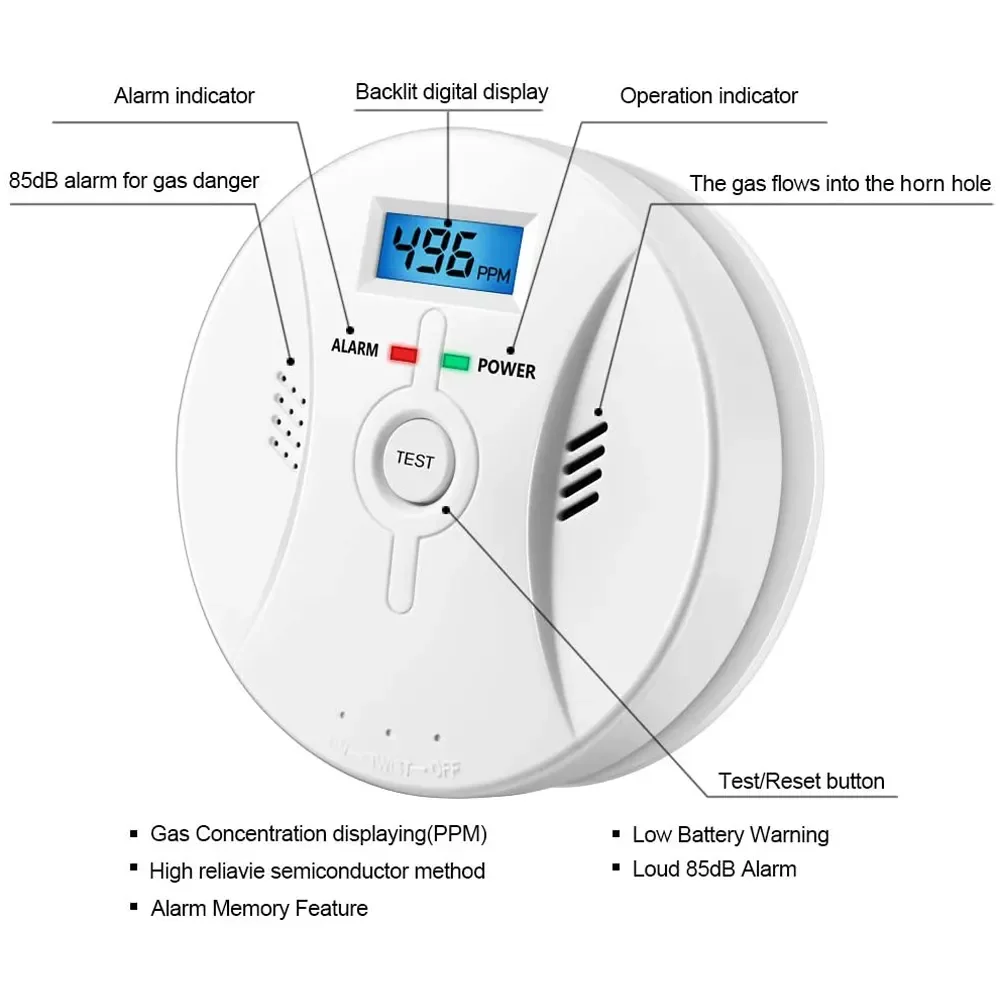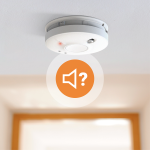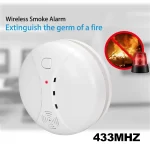Common Causes for Smoke Alarm Chirping
Understanding why your smoke alarm is chirping is key to finding a solution. There are several common reasons a smoke alarm may start beeping persistently.
Battery Installation Errors
Often, the issue is as simple as a battery problem. If the battery is loose or installed incorrectly, this can prompt the alarm to chirp. Ensure the battery fits snugly and the polarity (+/-) matches the smoke detector’s requirements.
Dirty Sensing Chamber
Smoke alarms can collect dust and debris, which interferes with their sensors. Regularly check and clean the sensing chamber to prevent false alarms or chirping.
Environmental Factors
High humidity or temperature changes can set off your smoke alarm. Consider the placement of your alarm to avoid environmental triggers.
Age and End-of-Life Signals
Old smoke detectors often chirp to signal that they’re reaching the end of their life span. If your detector is near or past its expiration date, consider replacing it.
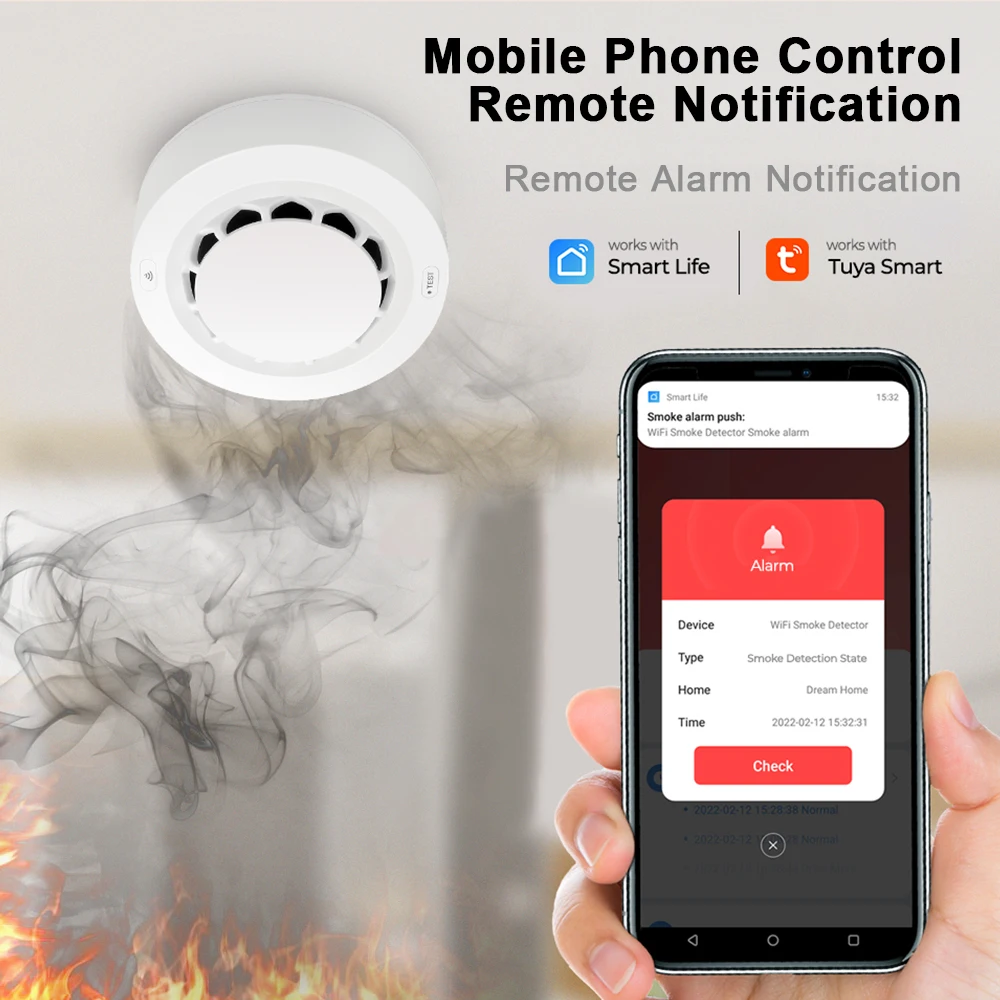
Types of Beeps and Their Meanings
Understanding the different sounds your smoke alarm makes is crucial. It helps you respond correctly and swiftly.
Continuous Beeps and Smoke Detection
A smoke detector emitting a series of continuous beeps is often alarming. This usually means it has detected smoke. If you hear this, investigate immediately. If there’s no smoke, the alarm might have a fault.
Intermittent Beeps and Battery Issues
Intermittent beeps, typically every 30 seconds, signal a low battery. Check the batteries. Replace them if they’re old. Ensure correct installation to stop the beeping.
Multiple Beeps for CO Detection or Malfunction
Multiple beeps could mean your smoke alarm is also sensing carbon monoxide. This is often the case with combination units. If it’s not a CO alert, your device may be malfunctioning. Check the device manual for specific beep patterns and meanings.
How to Troubleshoot and Silence a Chirping Smoke Alarm
A chirping smoke alarm can be a nuisance. Yet, it often points to issues needing attention. Here are steps to troubleshoot and silence the chirping.
Replacing the Smoke Alarm Batteries
First, check the batteries. Weak or dead batteries are common culprits in chirping alarms. Replace old batteries with fresh ones, ensuring they are properly seated and the correct type.
Ensuring Proper Battery Drawer Closure
Make sure the battery drawer is fully closed. A drawer left ajar can disrupt the electrical circuit, causing the alarm to chirp. Push the drawer until it clicks shut.
Removing Battery Pull Tabs
New smoke alarms have a pull tab that prevents battery drainage in storage. If you’re setting up a new device, remove this tab so the battery can connect.
Cleaning the Sensor Chamber
Dust and debris can block the sensor chamber, leading to false alarms or chirping. Clean the chamber with a soft brush or compressed air.
Monitoring Temperature Fluctuations
Extreme temperatures can cause false alarms. Relocate smoke alarms away from kitchens, windows, and bathrooms to prevent temperature-related chirping.
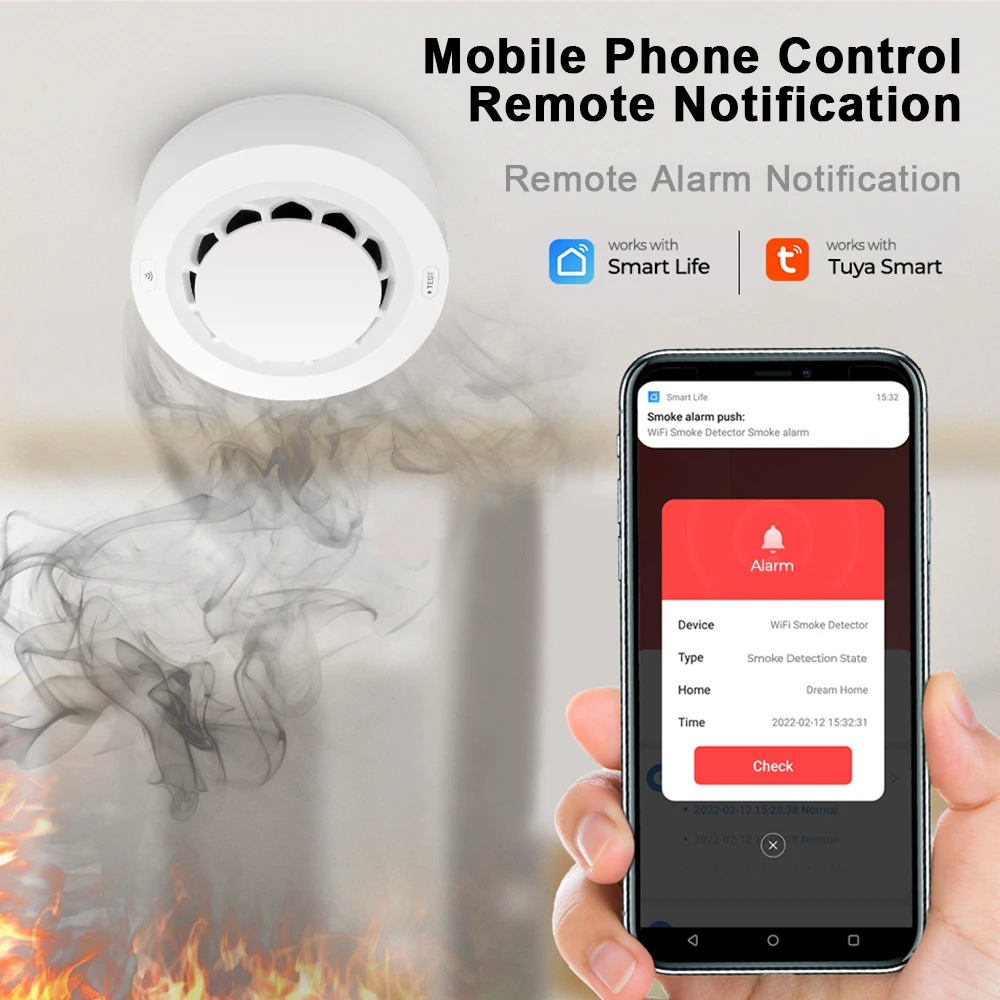
When to Replace Your Smoke Detectors
Smoke detectors are critical for home safety, but they don’t last forever. Knowing when to replace your detectors can save lives. There are clear signs that indicate a detector may be past its prime.
Recognizing the Signs of an Aged Detector
Smoke detectors generally have a lifespan of up to 10 years. Check the manufacture date on your detector. If it’s near or beyond this age, it’s time for a new one. Another sign is frequent chirping not related to battery issues or environmental factors. If maintenance doesn’t stop the beeping, get a new detector.
The Importance of Regular Testing and Maintenance
Test your smoke alarms monthly. Push the test button to hear the beep. If it’s weak or non-existent, replace the batteries and test again. No beep after new batteries means it’s time for a new alarm. Keep your detectors clean and free from dust to ensure proper function.
Battery-Operated vs. Hard-Wired Smoke Alarms
Choosing the right type of smoke alarm for your home is crucial. Battery-operated and hard-wired alarms have their unique features and benefits. It’s key to understand these to make an informed decision.
Pros and Cons of Battery-Operated Detectors
Battery-operated smoke alarms are popular because they are easy to install and maintain. You don’t need wiring skills to set them up. If the power goes out, they still work, which adds to their reliability. However, these alarms need regular battery checks to ensure they function when needed. The main downside is that you have to remember to replace the batteries. Some models chirp to remind you, but if you ignore the alert, you could be at risk.
Replacing batteries can also be a nuisance. Imagine climbing up a ladder repeatedly to change them. This can be particularly bothersome for high ceilings. And if you’re away from home and the battery dies, your safety net is gone.
Advantages of Hard-Wired Smoke Alarms
Hard-wired smoke alarms are connected to your home’s electrical system. They often come with a battery backup for power outages. One of the biggest benefits is that if one alarm goes off, the others can too. This interconnection raises the alarm throughout your home, giving you time to react quickly.
They are less maintenance than battery models since they use your home’s power. No need to change batteries often. This can save time and reduce the risk of forgetting to replace them. However, these systems are more complicated to install. You might need a professional, which can up the cost. Also, if there’s an electrical issue, they might not work unless they have battery backup.
Hard-wired detectors are reliable and convenient for continuous protection. They are a solid choice for peace of mind. But, their installation and upfront costs might be higher than battery-operated ones.
Whether you choose a battery-operated or hard-wired alarm, remember to test them regularly. This will help ensure they are ready to alert you in case of smoke or fire. Regular testing is key to maintaining your safety at home.
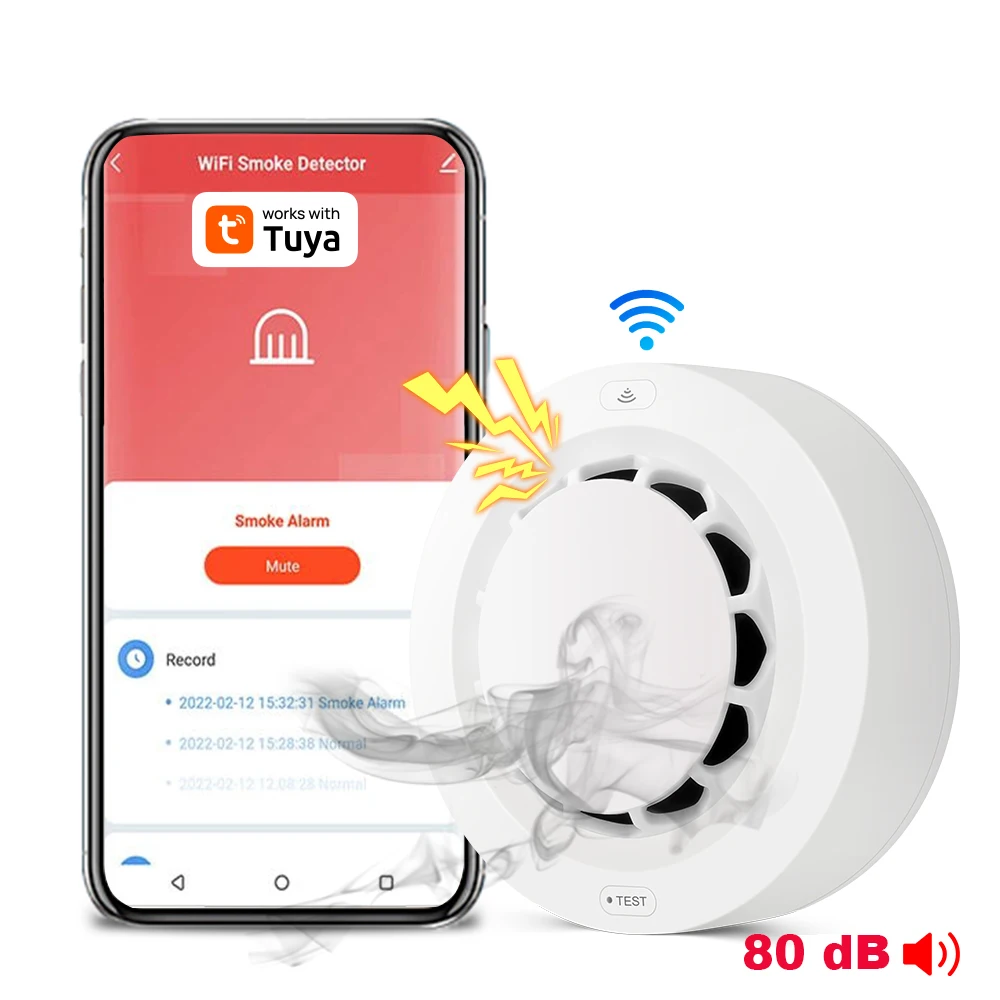
Professional Solutions for Smoke Alarm Issues
To keep your home safe and the smoke alarm operating correctly, professional services can be invaluable.
Security System Services and Upgrades
Upgrading your security system includes a full check and replacement of smoke alarms. Professionals ensure proper installation and maintenance. They also offer upgrades like interconnected alarms for a more responsive system.
Environmental Monitoring and Alarm Integration
Professionals can integrate smoke alarms with environmental monitoring. This helps detect issues like high heat or humidity that can cause false alarms. Your system can then be optimized for accuracy and reliability.
To address how to get smoke alarm to stop beeping, security experts can help. They provide thorough inspections, system integrations, and tailor solutions to your needs.
Troubleshooting Smoke Alarm Issues
When your smoke alarm starts beeping, it can be both annoying and concerning. Professional services can help diagnose the root cause of the problem. Here are some common issues and solutions:
- Battery Replacement:
- One of the most common reasons for a smoke alarm to beep is a low battery. Professionals can quickly replace the batteries in your alarms, ensuring they function correctly.
- Cleaning and Maintenance:
- Dust and debris can accumulate in smoke alarms, causing false alarms or beeping. Security experts can clean the alarms and perform regular maintenance checks to keep them in optimal condition.
- Check for Malfunctions:
- If your smoke alarm continues to beep after replacing the battery, there may be a malfunction. Professionals can perform diagnostics to determine if the alarm needs repair or replacement.
-
Correct Placement:
- Smoke alarms should be installed in optimal locations for effectiveness. Professionals can evaluate your home’s layout and recommend proper placement for maximum safety and minimum false alarms.
